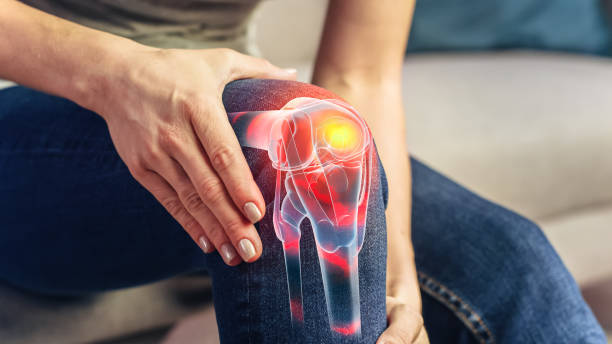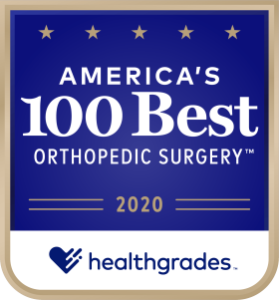
Knee Pain: The Causes
Knee pain is an unfortunately common experience in older individuals, and it is most often associated with general strain from common activities like walking, bending, lifting, or standing. Athletes in sports that require jumping or pivoting may also experience knee problems.
Common knee problems include:
- Sprained or strained knee ligaments. These are usually caused by a force to the knee or a sudden twist, which can lead to pain, swelling, and difficulty walking.
- Torn Cartilage. A more severe injury that may occur alongside sprains. In this case, surgery to repair the tear or other protective measures may be necessary to promote healing.
- Tendonitis. Tendonitis, or inflammation of the tendons, occurs with the overuse of tendon during specific actions like running, jumping, or cycling.
- Arthritis. Osteoarthritis, a degenerative process in which cartilage in a joint deteriorates over time, is the most common type of arthritis affecting the knee. This condition is often present in people of middle and older age but may also be related to repeated injury or increased body weight.
Does Walking Help Knee Pain?

For other conditions, like osteoarthritis, however, there is scientific evidence to suggest that walking may be as beneficial as other strength building exercises. In a 2005 systematic review, scientists found evidence to support that among patients with knee osteoarthritis, regular walking over the course of several weeks improved participant’s pain by 69% compared to non-walking individuals. In this study, there was no significant difference in pain between patients who walked regularly compared to patients who completed strength training exercises.
Walking to help Knee Pain:

Great Lakes Orthopaedics
If you’re seeking treatment for your knee pain, you can find support with Great Lakes Orthopaedics. Reach out today to learn more about our highly specialized orthopaedic treatments and get back to living your best active life.
Medical Disclaimer:
The information in this article is provided for general information only. It is not intended as medical advice and should not be relied upon as a substitute for professional consultation with a healthcare provider familiar with your medical background and history.




